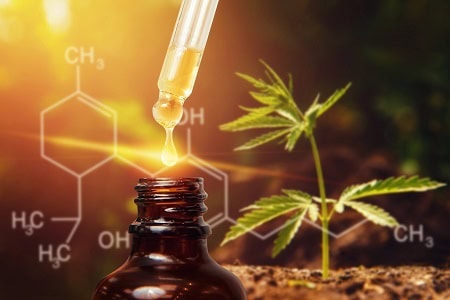CBD Helps Heroin Cravings
by Thaddeus Camlin, Psy.D.
Crises precipitate change. The opioid crisis is catalyzing change in addiction treatment. The tragedies of the opioid crisis may be the reveille that stirs addiction treatment from its walking slumber. Medication-assisted treatment (MAT) is finally being championed as the frontline defense in the opioid crisis. Not only are advances being made in increasing accessibility to medication-assisted options like methadone and buprenorphine, researchers are looking into other options as well. A new study investigated whether CBD helps heroin cravings, and the results were encouraging.
 Heroin Cravings and CBD: The Study
Heroin Cravings and CBD: The Study
The study, published in the American Journal of Psychiatry, found that CBD significantly reduced both cravings and anxiety after participants were presented with stimuli intended to trigger cravings. Participants who received CBD and were exposed to triggering stimuli had lower heart rates and lower levels of cortisol in their saliva compared to participants who did not receive CBD. The study concludes that CBD’s potential to alleviate heroin cravings warrants further investigation as a treatment for opioid use disorders.
Encouraging Findings for CBD and Opioid Cravings
The finding that CBD helps alleviate heroin cravings is encouraging. There are already some forward-thinking treatment centers providing cannabis to patients seeking treatment for opioid problems. The recent CBD study now provides some evidence to substantiate the plethora of anecdotal reports from people who say cannabis helped them stop using opioids and reduce opioid cravings.
CBD as a Treatment for Opioid Use: The Risks
There are some risks to using CBD as a treatment for opioid use disorders as well. The World Health Organization already declared that “there is no evidence of recreational use of CBD or any public health-related problems associated with the use of pure CBD.” However, the ongoing debate about whether to classify CBD as a food supplement or a drug creates a grey area for CBD that limits the reliability and consistency of the products manufactured. According to researchers, the primary risks with CBD currently are that the labels on the products are often misleading in regards to purity and composition, and the unregulated production process means that harmful contaminants can find their way into the CBD products available to consumers.
Even with the risks of an unregulated production process, the preliminary finding that CBD helps attenuate heroin cravings is encouraging. The new study justifies further research into CBD specifically, and cannabis generally, as potentially useful medication-assisted treatment options for opioid use disorders.
If you’re interested in an alternative approach to addiction treatment, we can help.

 Heroin Cravings and CBD: The Study
Heroin Cravings and CBD: The Study